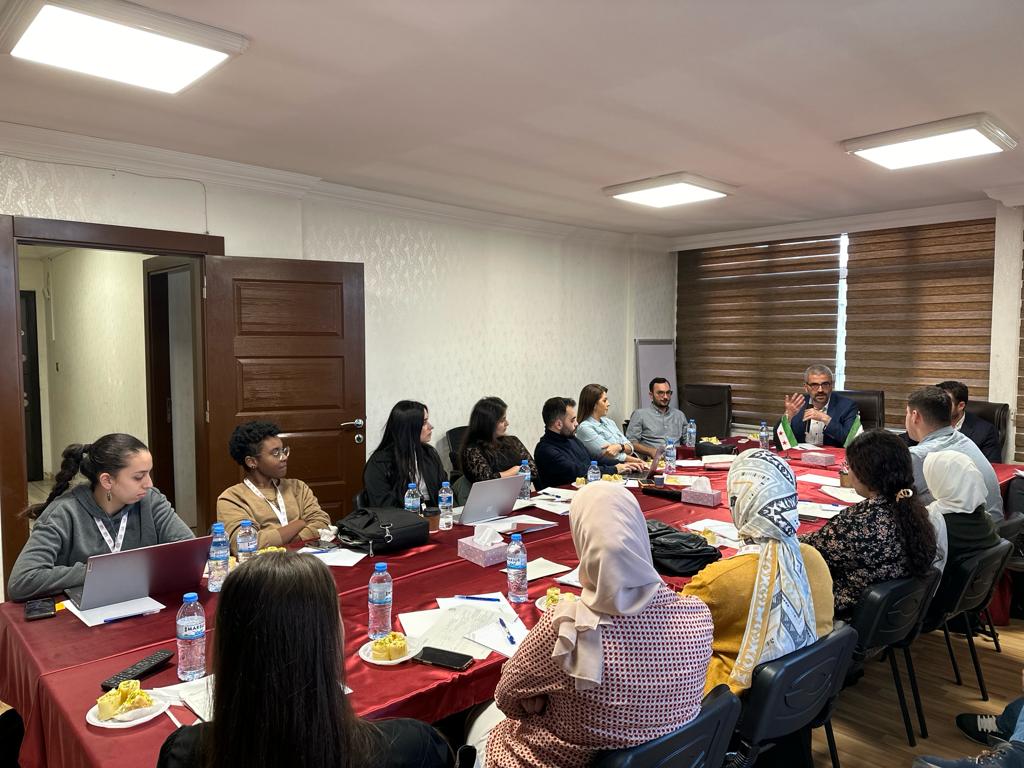Vice President of the Syrian Opposition Coalition (SOC), Abdul Majeed Barakat, participated in a dialogue symposium held by the Stabilization Support Unit in the city of Gaziantep. The event was titled “The Syrian Opposition and the Political Process” and saw the presence of a member of the Syrian Negotiations Commission, Tariq Al-Kurdi. The symposium hosted 14 male and female students from the Conflict Management and Humanitarian Work program of the Doha Institute for Graduate Studies.
Barakat addressed the attendees via a video link, discussing the latest developments in the political process and the SOC’s role in these developments. He also highlighted the ongoing efforts to rejuvenate the political process in cooperation with major stakeholders in Syria. The goal is to implement UN resolutions related to the Syrian crisis, notably Resolutions 2118 and 2254, and ultimately achieve a comprehensive political transition in Syria.
Barakat emphasized that the Assad regime, with the support of Russia and Iran, is actively obstructing any avenues towards a political solution. He noted the international community’s lack of seriousness in addressing the Syrian crisis, which has left the Syrian people disillusioned. He further pointed out the heinous crimes committed by the regime and its allies against civilians.
Barakat underlined the continuous efforts to keep the political process at the forefront of the international community’s agenda and prevent the Syrian crisis from being solely viewed as a humanitarian issue. He stressed that the primary objective of the Syrian revolution and opposition forces is to find a political solution that fulfills the Syrian people’s demands.
Moreover, he observed that the international community lacks the genuine political will needed to implement a political solution, a central goal of the Syrian revolution and opposition forces. Instead, the international community is focused on managing the crisis, rather than resolving it, and this has significantly impacted the effectiveness of political efforts.
Barakat went on to explain that due to the international community’s inaction, the official Syrian revolution and opposition forces have been compelled to assume administrative, executive, and service responsibilities. They have exerted great effort to demonstrate the Syrians’ capability in managing their daily affairs. The ongoing endeavor involves developing liberated areas and empowering the Syrian Interim Government and its institutions to take charge of these regions.
Additionally, Barakat addressed the Palestinian issue, drawing parallels between the struggles of the Syrian and Palestinian people. Both have faced acts of genocide, arrest, and forced displacement from their homes and original areas of residence. He emphasized the unwavering support of the Syrian revolution and opposition forces and the Syrian people for the Palestinian cause against the Israeli occupation. This support reflects the deep-rooted position in the Syrian people’s conscience and stands in contrast to the Assad regime’s covert cooperation with the occupation while exploiting the Palestinian issue for personal gain.
Source: (Source: SOC’s Media Department)














